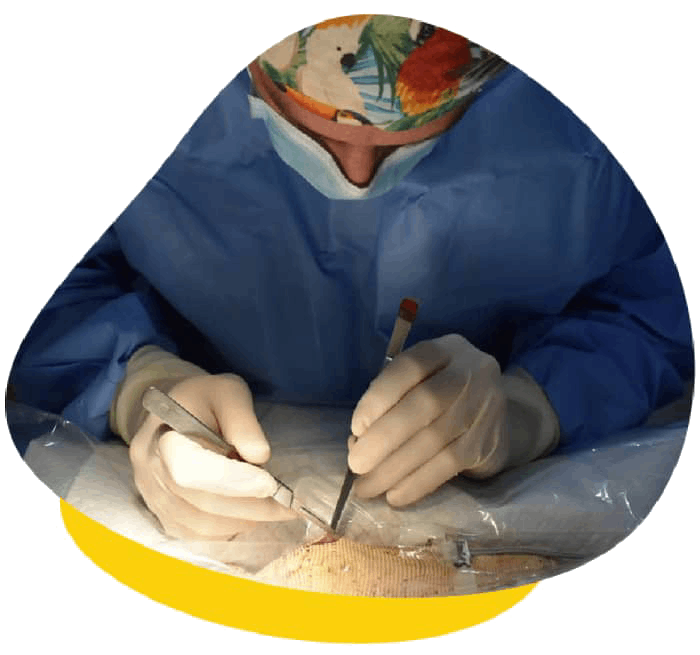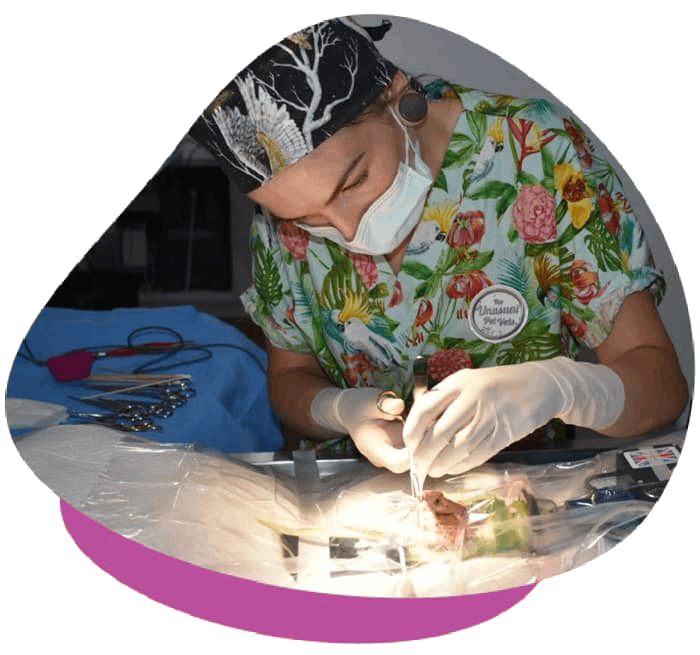
Anaesthesia
We have state-of-the-art anaesthetic monitoring equipment that allows us to monitor your pet’s heart rate, blood pressure, respiratory rate, respiratory effort, expired carbon dioxide level, blood oxygenation level and temperature. We have specialised fluid pumps to ensure that your pet’s vascular system is supported while undergoing any procedure.
All our practices have specialised exotic animal ventilators that can breathe for animals as small as twenty grams! This is especially important for rabbits and reptiles as these species often go through apnoea periods (not breathing on their own) while under anaesthesia.
Many of our patients are very small, and we utilise active warming procedures during surgery to ensure that their body temperature does not drop too low. This decreases the surgical procedure’s impact on their bodies and gives them the best chance of a smooth recovery.
